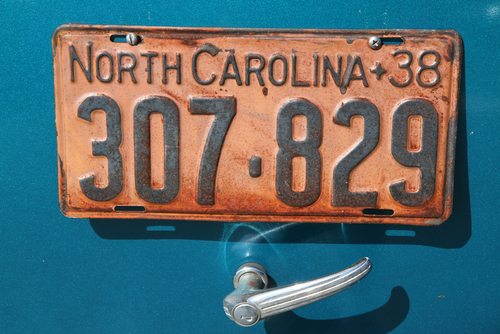
Kevin M. McCarthy / Shutterstock.com
July 17, 2013; ACLU.org
Is fear of intrusive digital tracking generational, as some suggest? Are younger people less terrified about constant surveillance than older people? The following report about the lack of regulations around the data collected by automatic license plate readers should terrify anyone with an interest in privacy and civil liberties. I would like to note that these types of reports from nonprofit human rights groups and watchdogs are critical to today’s journalism.
Sign up for our free newsletters
Subscribe to NPQ's newsletters to have our top stories delivered directly to your inbox.
By signing up, you agree to our privacy policy and terms of use, and to receive messages from NPQ and our partners.
The latest ACLU report, released yesterday, bears the positively Orwellian title, “You are Being Tracked.” It concerns the use of automated license-plate readers by law enforcement; basically, these are mounted cameras affixed to police cars or stationary objects like buildings to photograph every passing vehicle, recording the time, the location, and the license number. Despite a Supreme Court ruling from 2012 that made a judge’s approval necessary to use GPS to track a car, “networks of plate scanners allow police effectively to track a driver’s location, sometimes several times every day, with few legal restrictions.”
The report concludes that there are far too few rules in place to protect innocent citizens from unwarranted intrusions into their privacy. Only five states have laws on the books governing their use and circulation of the information they gather. Further, a small 2009 survey found that more than half of those agencies that responded and used license plate readers had no policy addressing license plate reader use and among those agencies that already had or were developing license plate reader policies, most policies did not address data retention or data sharing.
Apparently, many police departments retain the information for extended periods of time, feeding the data to other entities. Jersey City, N.J., for example, collected more than 2 million images in a single year—and that’s for a city whose population hovers around 250,000! The city keeps its records for five years, so the ACLU estimates they have around 10 million on file. From the report:
“License plate data are widely shared in California’s Bay Area through the Northern California Regional Intelligence Center (NCRIC), although the full extent of sharing is not publicly known. According to a May 2012 document, this fusion center’s goal is to collect license plate information from approximately 22 police departments, and grant access to several more. NCRIC maintains a broad mandate for its use of license plate information—in addition to law enforcement, NCRIC maintains that it may use license plate information for the ‘protection of special events; protection of critical infrastructure; and responding and mapping the license plate landscape of critical events.’”
The ACLU is calling for standards that would restrict the gathering and use of this information and it has made a series of recommendations about what those standards should include. If you do not know what the practices are in your neck of the woods, and thus have not yet kicked up a fuss, the report provides an interactive map. —Ruth McCambridge












